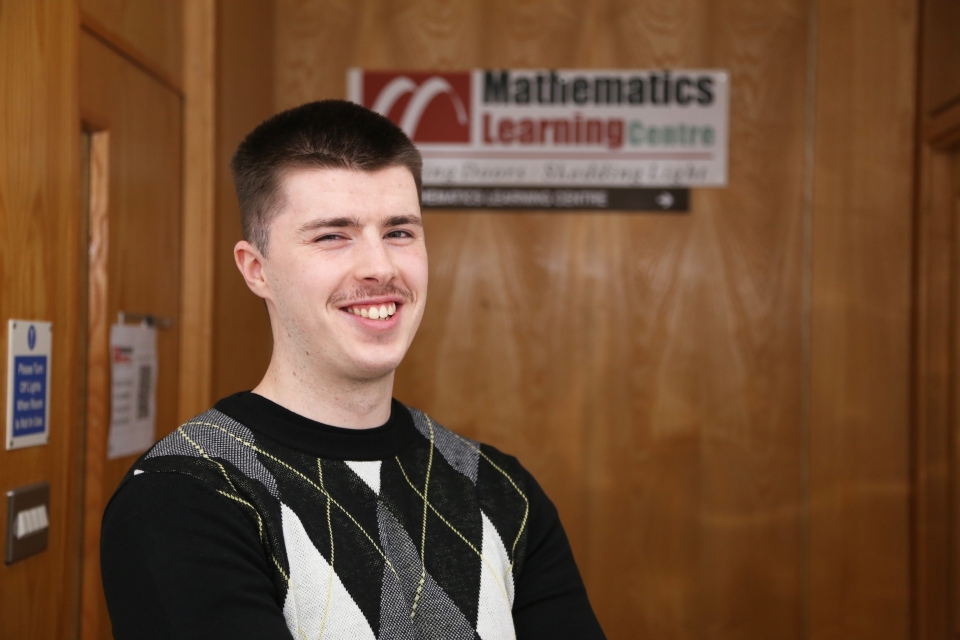
Course: BSc in Mathematics and Physics
Supervisor: Dr. Mehakpreet Singh
Name of Research Project/Activity: Efficient and accurate semi-analytical methods for nonlinear population balance models
Q) Can you tell me a bit about yourself, your background, and why you decided to study the course you are taking at UL?
My name is Thomas Power. I’m a second-year maths and physics student at UL. I’m from Shannon in Co. Clare and attended St. Patricks Comprehensive School in Shannon. I’ve had a keen interest in maths and understanding how everything works which was the main reason for my decision to study Maths and Physics.
Q) What motivated you to apply for the Summer Bursary Programme?
I was motivated to apply for the S&E Summer Bursary Programme by the opportunity to conduct my own independent research into an area of mathematics that I enjoy learning about. I really enjoyed my modules on numerical analysis, ordinary differential equations and partial differential equations, which left me wanting to learn more about the topics. The chance to gain valuable research skills and further my knowledge of numerical analysis and its applications in chemical and pharmaceutical sciences was an opportunity I couldn’t turn down.
Q) What are you doing as part of your research here at UL?
The title of my research project is “Efficient and accurate semi-analytical methods for nonlinear population balance models”, which is concerned with approximating solutions to population balance equations. These Population Balance Equations (PBE’s) are used to model the behaviour of a population of particles that undergo various processes. These models have various real-life applications in fields such as astronomy, dairy sciences, and the pharmaceutical industry. However, solving these models semi-analytically and analytically is challenging due to the presence of nonlinear integrals. My research aims to familiarize myself with these PBE’s and the already existing semi-analytical methods, with the goal of developing more generalized semi-analytical techniques in the future.
Q) What skills have you developed over the summer?
So far, I have learned how to conduct research independently, by finding relevant papers and understanding the key concepts by myself. I have also improved my programming skills using MATLAB. I have also learned how to write and explain concepts in an academic manner. My communication skills have been improved as well through interactions with my peers and supervisor.
Q) What has this experience taught you and what would you recommend it to others?
This summer has been my first taste of what being a researcher is like and I have thoroughly enjoyed it all. It has allowed me to delve into an area of mathematics that I find interesting and has helped me gain a more comprehensive knowledge of the topic and its intricacies. This project has developed my critical thinking and problem-solving skills. It has also improved my communication skills through communication with my peers and professors, teaching me how to articulate my thoughts clearly and receive feedback from others. I would strongly recommend this bursary to anyone with a curious mind and a love for learning.
Q) What are your future career plans, would you consider a career in research?
At the moment I am still uncertain about my future career path, however, the summer bursary experience has sparked my interest in pursuing a research career. The opportunity to engage in research has given me a new appreciation for the field. I am extremely thankful to the Faculty of Science and Engineering and Dr. Singh for the wonderful opportunity they have given me.
